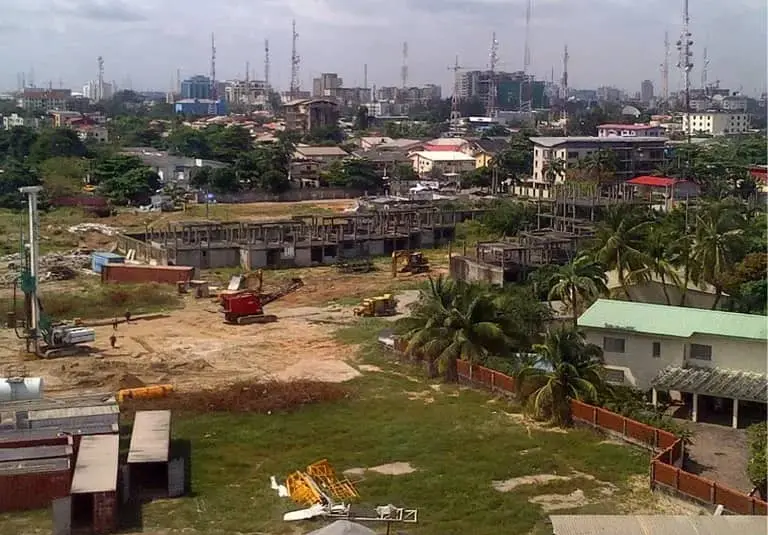Stakeholders have called on governments both at the local and state levels to provide affordable housing to local communities by embarking on urban renewal projects in their rural areas.
The stakeholders who were made up of civil society organisations, media, government, communities and academia gathered recently at a conference to brainstorm on issues of infrastructure development in communities in Lagos state such as provision of clean water, good roads, waste management and affordable housing.
The one-day conference was organised by the Centre for Housing and Sustainable Development, University of Lagos (CHSD-Unilag), in collaboration with Heinrich Böll Stiftung (HBS) and Rethinking Cities Initiative (RCI), with the theme “Community Infrastructure Projects and Lagos State Development Plan 2052: Reality, Planning and Implementation.”
The participants, in their deliberations, expressed hope that with the presence of urban renewal projects in their communities, affordable housing schemes will increase thereby increasing housing stock in the rural areas.
In their recommendation after a presentation on housing as contained in the Lagos state development plan 2052, by Emmanuel Adekunle, participants noted that government should identify and hold meetings with formal groups in the housing delivery system to “market” the opportunities or necessity of low-income / mixed-income housing development.
According to them, the initiative on reducing cost of permit for low-income and mixed-income housing can be effective through An Executive Order to be issued by the State Governor, adding that
Section 37 of the Lagos State Tenancy Law 2011 needs to be made effective through encouragement of tenants to seek redress in the provision for “unreasonable increase in rent”.
They opined that work should be concluded on the Draft of Lagos State Housing Policy, which has one of its goals as promoting no-income and low-income housing, pointing out that the no-income housing goal of the Draft Policy is targeted at the aged, retirees, deprived and vulnerable persons/groups.
They also recommended that the Real Estate Developers programme, in which land is offered to corporate bodies should be sustained to build homes and provide infrastructure, maintaining that such developers should be made to focus on low-income and mixed-income homes.
They further stated that the State Governor should issue an Executive Order that road, and drains should be provided in any low-income housing development project, initiated by a private sector organization, including a Co-operative Society.
The participants equally noted that the number of units to be built by such a developer to qualify for the intervention should be determined by the State Government.
Meanwhile, in his presentation, Adekunle talked about the adequacy of the proposed LSDP 2052 initiatives in housing. He assessed the gaps in the initiatives, and offered recommendations and steps for implementation.
According to him, “As ambitious as the LSDP appears, achieving its goals/objectives require the buy-in, of various stakeholders.
”There should be a realization of the fact that more than one Ministry or MDA would be required to accomplish some initiatives, as indicated in the LSDP.
“Limiting an action for accomplishing an initiative to just one MDA is not result-oriented.
There is a need to identify all MDAs in the State, that will be responsible for accomplishing each initiative.
”Federal institutions will also be required as activators or implementors of some initiatives, due to the cross-cutting nature of issues in low-income/mixed-income housing”.
However, in his response, Lagos state Commissioner for Housing, Moruf Akinderu-Fatai, said Lagos has the best housing programme, and the current administration is encouraging the implementation of Low-income housing.
According to Akinderu-Fatai, deliberate efforts are ongoing to provide low-income housing in Lagos.
“The affordable housing bill has been completed, even though the former attorney general disagreed.
“However, a review of the bill will be done and presented to the new attorney general of the State”.
Earlier in her presentation of assess of community development projects in Lagos, Prof. Taibat Lawanson, noted the outcomes from the research “Assessing community development projects in Lagos” on behalf of the CHSD-UNILAG team.
The presentation began with an introduction to the urban governance project between CHSD-UNILAG and HBS, which the two organisations had been doing in the past years, including the community charter of demands and an overview of the asset mapping project with five communities.
During the presentation of the results from the asset mapping exercise conducted across the five communities, Prof. Lawanson intimated that the main reason for the dissemination event was for the legislators to interact with the communities to understand their needs. However, she expressed her displeasure over the absence of the Lagos House of Assembly members at the event despite the invitation extended to them.
Also, she noted poor local government participation across communities but acknowledged the need to strengthen their capacity for grassroots development.
Source: Vanguard






















![Green Building Materials Market Trends [2023-2030]](https://housingcable.ng/wp-content/uploads/2022/04/csrgreen-building_Cisco_04222022-218x150.png)










